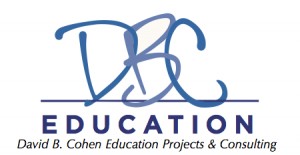 This post originally appeared on my EdWeek Teacher Blog Road Trips in Education on April 15, 2015.
This post originally appeared on my EdWeek Teacher Blog Road Trips in Education on April 15, 2015.
If you follow enough education media – mainstream or social – you might have seen them lately: lip sync and “lip dub” videos, music parodies, pictures of class banners and signs, slogans and rallies, cheerleaders of all ages in all sorts of costumes. All for what? Testing?
I know there are some fine people who believe they’re doing something good through these efforts; I might make some friends and colleagues unhappy with this statement, but I find those videos and rallies unsettling, even a bit depressing. I understand the purpose and the appeal for some people – including students, many of whom I suppose are actually enjoying themselves. But to the extent that such motivational rallying efforts are ubiquitous for this particular purpose and otherwise rare, it’s surely a sign of how far we’ve strayed from what should be the core purposes and drivers in education.
To be more precise, what exactly are we cheering when we go rah-rah! for testing? Really expensive and time-consuming exercises, only partially aligned to our students’ learning, offering ambiguous information through artificial and simulated applications of a small subset of important skills.
If the tests weren’t actually causing undue stress to children and adults, if they weren’t actually boring and exhausting, if they weren’t actually steps removed from important learning, if they weren’t over-valued by schools and school systems, then no one would need to spend this time and energy convincing kids to engage and care. If you look at some of the images and attend carefully to the language of this cheerleading, much of it is about beating or defeating the test, a tacit (or sometimes explicit) acknowledgement that it’s almost like a foe, one that could defeat children or schools if we don’t get everyone in the right frame of mind.
The frenzy is reminscent of sports, where, of course, there are actual opponents physically trying to defeat each other and usually only one side can win. Or war, where soldiers may need to enter a different state of mind in order to push themselves into combat.
Funny thing – when children are engaged in purposeful work, when they have some degree of choice and creativity in their work, some authentic purpose, meaningful direction and true audience, there’s no cheerleading required at all. Students will rise to the occasion, put in the extra hours, and forget to ask “is this being graded?”.
The situation seems analogous to operating a driving school and putting way too much emphasis on the written test. Break out the banners and crepe paper and whoop it up – for hours and hours of non-driving assessments that are related but indirect measures of driving skills! Actual driving? We celebrate that a little bit, sometimes. Whatever. No need to manipulate emotions around actual driving, and in any case, the systemic accountability happens at a desk, not in the driver’s seat.
I’m not suggesting that all school work, every day, needs to be complex and fun and entertaining; there’s a place for direct instruction and deliberate practice, a need to master some common content, skills, and operations. I’m not even suggesting that we should abandon standardized assessments on a large scale. We could dramatically shrink the amount of testing through sampling and still have useful data for accountability purposes; we could also develop more robust accountability systems where testing data has an appropriately limited role.
But stop a moment and think: why are we so worked up over the tests? What messages do we send to students when we crank up our energy and creativity and intensity for tests? If students can’t do their best work unless adults hop, skip, strut, twist and shout about the test, we’re doing something quite wrong in assessment, and in our messaging about education.
In a recent PBS News Hour report on Common Core testing, I was struck by how much test scores replace both intrinsic motivation and potentially better external measures of success. A student says of testing, “I’m a little nervous because we’re probably going to be compared to the other states like Ohio and New York. But I’m really happy at the same time because we do have really, really smart children at Jefferson and we can show what we know to the rest of the country.” You can hear the echo of adult voices in that rationale for caring about testing. The principal of the school, it is noted, instituted some new approaches to school improvement, including home vists. Those visits were valuable, it is implied, because test scores rose. And if scores didn’t improve as much, or at all, the home visits would be deemed ineffective? As if the only outcome that validates a change is the test score.
The warped priorities generated by high-stakes test-based accountability have done some serious damage. Children and adults give too much credence to what the tests say about learning and teaching. School leaders foster conditions that encourage cheating, sometimes ignored and sometimes punished as if it were violent crime committed by dangerous people. Policy makers, pundits, and education “reform” advocates latch on to the slightest bit of information and will even concede we don’t know what it means, before explaining what they want it to mean. Charter school management organizations hope to send the spread sheets straight to the marketing department.
But I’m not a total killjoy: if you need help with cheers for kindness and good citizenship, banners celebrating creativity, posters promoting innovation, videos about deeper learning, or rallies for educational equity, sign me up!

I’ve always been more than a little uncomfortable about the sometimes implied, sometimes shouted from the mountains, goal of beating other schools, as much as I am about the narrative of going to war against the test.
The whole school ranking thing at first annoyed me. Now it just makes me sad.
Thank you! I am sharing on the Education Now! Facebook Page, and the Education Now! Google + page.. my own timelines and in teacher group pages. The denial that a teachers assessment is the best indicator of how a student will do in School and in life, (there is research to prove this) has destroyed Public Education in the USA. I so much wanted the Teachers Unions to fight this from the beginning, for the kids and for the teachers.
Thanks for reading and commenting, Athena!